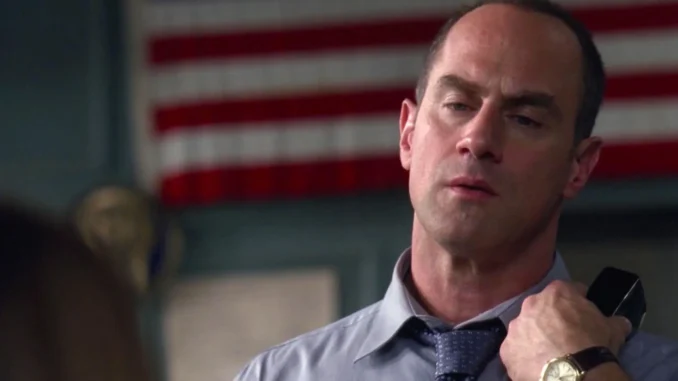
Elliot Stabler, portrayed by Christopher Meloni, stands out as one of the most complex and compelling characters in Law & Order: Special Victims Unit. His aggressive and often volatile behavior makes for gripping television, but it also raises questions about why he tends to act impulsively. In this article, we’ll explore the possible reasons behind Stabler’s whimsical actions, examining key moments that illustrate his struggles.
The Dichotomy of Stabler’s Character
A Man Torn Between Duty and Emotion
From the outset, Stabler is portrayed as a detective whose heart is usually in the right place. He is deeply committed to his work and the victims he serves. However, this passion often manifests in ways that are questionable, to say the least. The emotional weight of his job, combined with his personal struggles, creates a volatile mixture that often leads him to act on impulse.
Stabler’s relationship with Olivia Benson (Mariska Hargitay) often acts as a counterbalance to his more reckless tendencies. Benson’s emotional maturity and ability to connect with victims provide a grounding force for Stabler, yet he still frequently crosses ethical lines. His approach can be likened to a blunt instrument—effective but often misguided.
Impulsivity as a Coping Mechanism
Stabler’s impulsive actions can be seen as a coping mechanism for his intense emotional turmoil. The traumatic cases he deals with daily, compounded by his own life experiences, fuel a tendency to lash out. Whether he’s confronting a suspect or grappling with personal demons, his reactions are often knee-jerk, reflecting a man who struggles to process his emotions in a healthy way.
Key Moments that Highlight Stabler’s Whimsical Behavior
1. Covering Up a Crime for a Friend
In Season 7, Episode 4, “Ripped,” Stabler’s loyalty to his former partner leads him down a troubling path. He hesitates to investigate the alleged crime involving his partner’s son, dragging his feet instead of upholding his duty. This episode serves as a classic example of how Stabler’s personal ties can cloud his judgment and lead to questionable decisions.
2. The Near-Fatal Decision in “Pandora”
Season 4, Episode 15, “Pandora,” showcases a chilling moment when Stabler finds himself considering killing a suspect. After tracing a kidnapped girl’s whereabouts to Prague, he confronts the suspect in a vulnerable moment—while he sleeps. Holding a gun to the man’s head, Stabler debates pulling the trigger, revealing how his emotional state can dangerously skew his sense of right and wrong.
3. Harassment of an Innocent Man
In Season 11, Episode 3, “Solitary,” Stabler’s obsession with catching a suspect leads him to harass an innocent man. His relentless pursuit of a confession blinds him to the moral implications of his actions. This episode highlights how his impulsive nature can lead him to overlook the very principles of justice he swore to uphold.
4. Protecting His Daughter at All Costs
Stabler’s fierce protectiveness over his daughters often manifests in reckless behavior. In Season 6, Episode 21, “Blood,” he uses his position to cover up a DUI charge for his daughter Kathleen. This act not only shows his impulsive decision-making but also reflects a troubling pattern where his personal biases interfere with his professional responsibilities.
5. The Violent Encounter in “Confession”
In Season 10, Episode 2, “Confession,” Stabler’s emotional response to threats against his daughter leads him to assault a suspect without backup. His actions jeopardize both his career and the integrity of the case, illustrating how easily his protective instincts can spiral into violence.
Stabler’s Struggles with Ethical Boundaries
The Gray Area of Vigilante Justice
One of the recurring themes in Stabler’s story arc is his tendency to stray into vigilante territory. In Season 5, Episode 5, “Serendipity,” he drowns a suspect to extract information, an action that raises serious ethical questions. Such moments underscore the blurred lines between law enforcement and personal retribution, revealing a character who wrestles with the moral weight of his decisions.
Misguided Views on Victims
Stabler’s interactions with victims often reflect outdated views that conflict with the show’s progressive stance. In Season 3, Episode 10, “Ridicule,” he dismisses a male victim’s claims of sexual assault, highlighting a troubling ignorance about victimization. His inability to empathize fully with all victims showcases a lack of understanding that can arise from his impulsive nature.
The Impact of Trauma on Stabler’s Decisions
Coping with Personal Trauma
Throughout the series, Stabler’s backstory reveals significant personal trauma, from his tumultuous family life to the pressures of his demanding job. These experiences shape his worldview, often leading him to act impulsively when faced with challenging situations. His past struggles create a sense of urgency in his decisions, reflecting a man who feels the weight of the world on his shoulders.
The Fallout of His Actions
Stabler’s impulsivity often has significant repercussions, both for himself and those around him. His rash decisions frequently place him at odds with his colleagues, including Benson, who must navigate the fallout of his behavior. This dynamic adds a layer of complexity to their partnership, as Benson often finds herself in the position of mediator, trying to bring Stabler back to a more rational state.
Conclusion
Elliot Stabler’s propensity to act on a whim in Law & Order: SVU can be attributed to a combination of personal trauma, emotional volatility, and a strong sense of justice that often eclipses ethical considerations. While his intentions are typically noble, his impulsive actions reveal a deeply flawed character navigating the murky waters of law enforcement. As viewers, we are left to ponder the implications of his choices and the price he pays for his unwavering commitment to justice.
